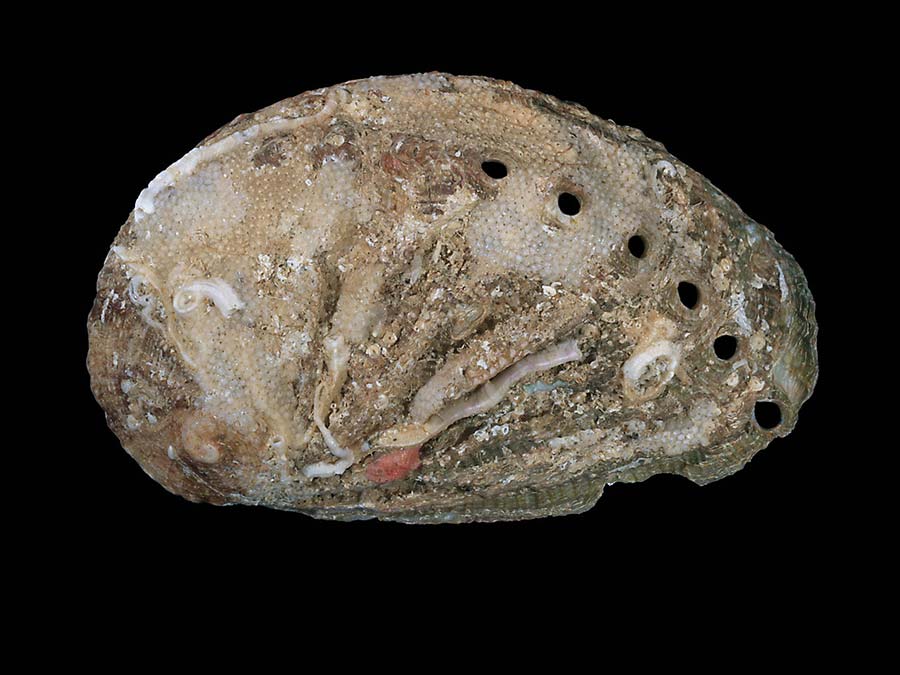Ormer

The ormer is a local seafood delicacy whose harvesting is strictly controlled to preserve stocks. They are found under rocks in the shallows surrounding the island where they live in shells with pretty, mother of pearl interiors.
They can only be caught on days around new and full moons during the first four months of the year. Any ormer taken from the sea must be at least 80mm long. It is no longer permissible to preserve ormers for longer than two days by pickling or cooking and keeping, so the incentive is to only collect as many as you can eat immediately. Export is forbidden without permission from the island’s Sea Fisheries department. The department also maintains a list of ormering tides on its website.
The ormers are removed from the rocks in the low spring tide with the help of an ordering hook, which is a bar with a crooked end. The Dictiounnaire Angllais – Guernesiais defines the term tournair as gathering ormers by turning over boulders and explains,
Boulders strewn across the bay suitable for turning are thus known collectively as du tournage. To gather ormers from creeks and gullies as opposed to getting them by turning rocks and boulders is described as a criqu’tair d’s ormes.
Ormers and ordering are mentioned several times in book one, Dead in the Water. The children’s charity founded by Richelle Ibbott is called Ormer Orphans, while Marc Renouf and Charlie Dubois are described as being ‘two dissimilar allies [who] were drawn to each other like ormers to undisturbed rocks’. Remus Carey observes another unnamed character has ‘oversized ears like ormer shells’.
Ormers can be fried (after tenderising) but are often casseroled. Recipes vary, but generally involve tenderising through beating, soaking for several hours, coating in flour and frying then placing the browned ormers in a casserole dish with onion, bacon and stock and cooking at a low heat for several hours.
Ormer image © Hans Hillewaert / CC-BY-SA-4.0
Ormer in brief
The ormer is a sea snail found around the Channel Islands, the Mediterranean Sea, Canary Islands and off West Africa. Its numbers are now severely depleted but it remains a popular dish during the first four months of the year when collection is permitted.
Useful to know...
As well as restricting the times of year during which ormers can be caught (specific tides between 1 January and 30 April), the rules in place aimed at preserving their numbers largely make life inconvenient for those who wish to catch them, forbidding the wearing of wetsuits or the hunters putting their heads under water. All landed ormers must be at least 80mm in length.
Penalties for breaking the rules include fines of up to £5,000 and six months in prison.

FREE Guernsey newsletter
Don't miss our weekly update on Guernsey's fascinating history. We promise never to sell your data to anyone else, and there's a super-easy unsubscribe link on the bottom of each email so you can leave whenever you want.
See also...
BBC radio drama series
Traditional Guernsey fruit bread
Traditional spiced apple cake recipe
Local seafood delicacy
Succulent plant that grows abundantly on headlands.








